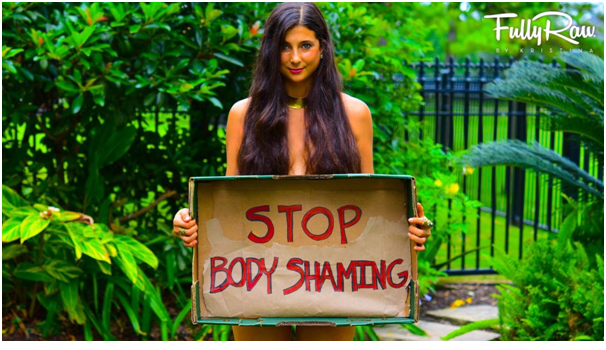THE DISGRACEFUL RESONANCE OF BODY SHAMING

NEW DELHI: Mainstream media’s problematic obsession with ‘ideal’ body types rarely fails to reach ludicrous standards. Mass media as the primary source that individuals usually look to for social comparison has mastered the art of rationalizing the unattainable into the palatable, especially for women. Women are usually at the receiving end of unwarranted flak for being ‘too skinny’, ‘too fat’, ‘too muscular’, ‘looking like a man’, ‘wearing too much makeup’, ‘ugly without makeup’; there has never been a seemingly ‘approved’ standard of appearance for women. The pervasiveness of the media makes it very challenging for most women to avoid evaluating themselves against the socio-cultural interpretations of beauty.
The sheer amount of tabloid coverage that discusses the physical appearances of renowned women is surprisingly high. Among innumerable headlines ranging from a variety of “How-to’s” to “Who Wore It Better?” the rampant body dissatisfaction that is consequently triggered has only become more prominent in this day and age. Women are pitted against each other; their bodies are a subject of public discussion for no concrete reason other than the promotion of imbecilic content encouraged by such agencies.
Eminent female figures have a large following, especially among young adolescent females and such appropriations only perpetuate the unachievable pinnacle of feminine beauty. The powerful influence of related images and representations not only constitutes internalization of unrealistic idealizations but also goes on to become the precursor of disordered eating, health issues.
Bodies of exemplary athletes including tennis icons Serena Williams, Martina Navratilova and WNBA player Brittney Griner among others have frequently been scathingly scrutinized for being ‘too masculine’ or ‘unlady-like’. J.K. Rowling rose to the defence of Serena Williams when a twitter user made a disgraceful remark about her body, last year.
Such ridiculous attacks on women’s appearances only reinforce the deprecating reception of society towards women choosing to reclaim their bodies, their sexuality in whatever way they please. To begin with, weighing in on how women should or should not look should not be anyone’s business other than their own. Cultivating a stigma around the bodies of strong, muscular women and consequent association of the same with femininity is not only uncalled for but also offensively regressive.
Hollywood actors like Keira Knightley, Angelina Jolie and Nicole Richie have repeatedly been placed under the radar for being ‘too thin’ and even accused of having eating disorders. Weight fluctuations among acclaimed public figures are met with equally preposterous ridicule.
It is particularly absurd to attach implications to certain body types under the tag of ‘ideal’ or perfect when in reality most people acknowledge that perfection is a construct in all other contexts.
The idiotic implicit impositions set off by equally idiotic advertisements, or people stand in the way of encouraging body positivity and confidence among women. In a bid to wean off body dissatisfaction among females, London mayor Sadiq Khan announced recently that ads that create body confidence issues will be banned from London underground. “Nobody should feel pressurized, while they travel on the Tube or bus, into unrealistic expectations surrounding their bodies and I want to send a clear message to the advertising industry about this,” he said in a statement.
The move follows a contentious “Are you beach body ready?” ad campaign, which caused widespread outrage from body positive advocates in the U.K. last year.
It is imperative that women feel comfortable in embodying what they wish to stand for as opposed to falling prey to the comparative and degrading idolization perpetuated by the media. It is essential to encourage women everywhere to not only confront the social conceptions of feminine beauty standards but also embrace their own appearances as the ideal. Fostering confidence and striving to deconstruct the edifice of socially constructed beauty characteristics should form an integral part of our increasingly globalised culture.



